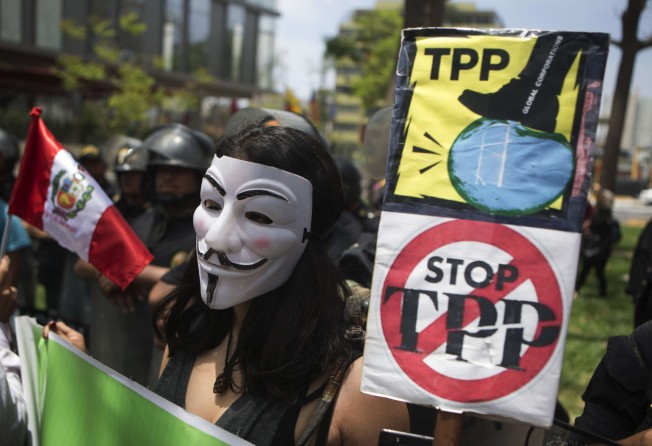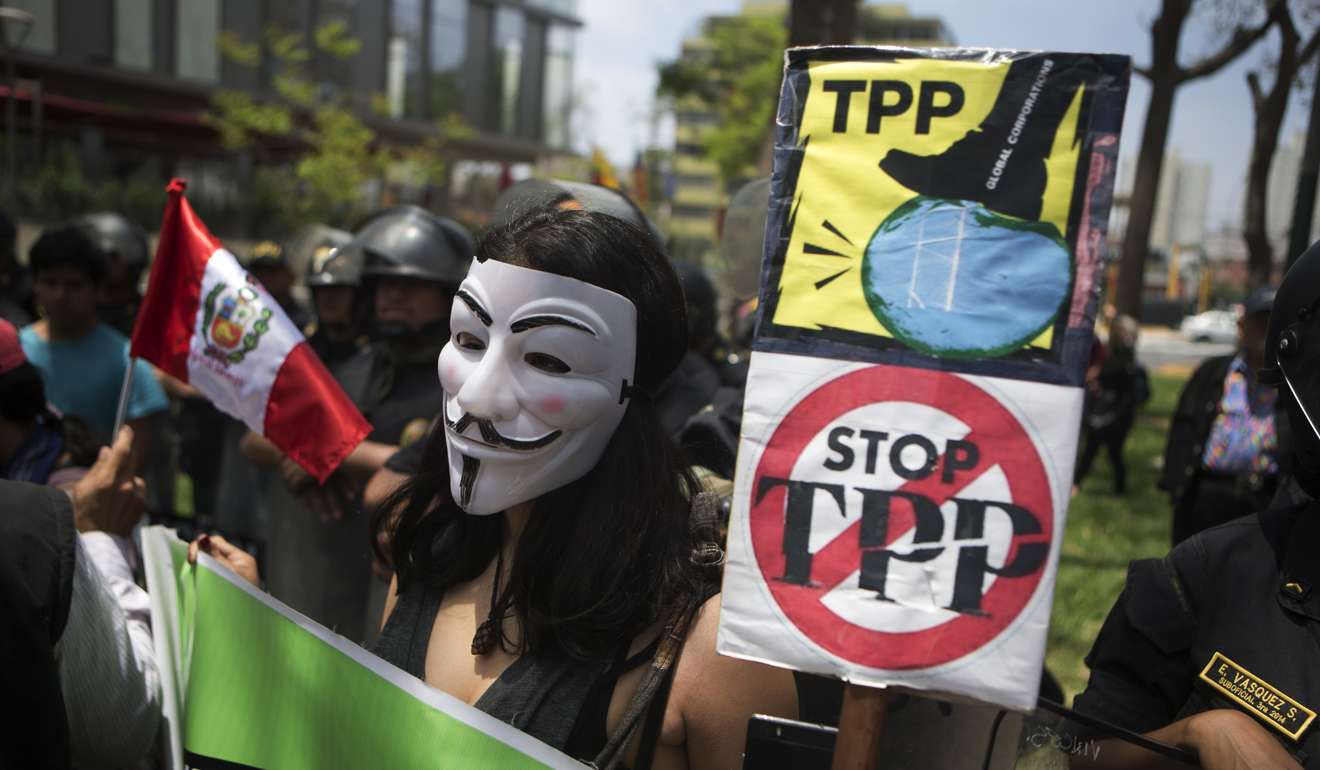Trans Pacific Partnership may yet live on without Trump’s America
Business leaders from as far apart as Japan, Vietnam and Australia seem unanimous that US refusal to ratify the trade deal should not block agreement among the other 11 signatories

Maybe the Trans-Pacific Partnership is not quite dead after all. Maybe there are enough leaders with confidence in the long-term benefits of free trade for this deal to be brought back from the brink. Maybe for once, Trump’s America might not be “the indispensable nation”.
Here in Seoul, at the year’s second meeting of Apec’s Business Advisory Council (ABAC), the voices have been unanimous that Trump’s flamboyant January withdrawal from the Trans-Pacific Partnership (TPP) should not be allowed to exterminate one of the world’s biggest and most ambitious trade agreements. At least, not without a fierce fight – likely to be staged during the meeting of Apec Trade Ministers in Hanoi in just under a month’s time.
Perhaps ABAC members’ sudden surge of optimism was unreasonably stirred by the sparkling blue springtime skies over Seoul, with its delicate green ginko trees just coming into leaf, and azaleas ablaze along every roadside, but I think the optimism was deeper than that. Even with Kim Jun-un’s nuclear sabre-rattling just a few kilometres away.
Business leaders from as far apart as Japan, Vietnam and Australia, all of whom have had close and recent briefings from their respective top trade officials, seemed unanimous that US refusal to ratify the trade deal should not block agreement among the other 11 signatories to the TPP. Whether leaders would try to ratify an “Eleven-minus-one” deal, or simply agree to implement its commitments within some other framework, is not so clear.
The mood of government officials was well captured by Ahn Chong-ghee, Korea’s Vice Minister of Foreign Affairs, when he spoke over dinner to ABAC members. Mr Ahn admitted that he felt “disheartened by the recent backlash against free trade”, but was unwavering in his confidence in its merits: “Free trade rests on the conviction that the free exchange of goods, services and ideas will help push back the frontiers of technology and advance human progress. Centuries of human history have shown this to be true … When economies trade, they are more productive and competitive, and enjoy more choices and higher living standards.”
He noted that the Apec economies bore testament to this truth, “achieving unprecedented growth by becoming integrated into a free and open multilateral trading system”. Even that neophyte champion of free trade, China’s President Xi Jinping, could not have said it better in Davos early this year.
Even more tellingly with nuclear war games being played all around, Mr Ahn observed that “today’s international trading system was consciously created as a means to support peace in the aftermath of two world wars. And we should not forget that free trade was essential in enabling nations to rise from the ashes and achieve peace and prosperity.” As leaders in Europe flirt with fragmentation in the wake of Britain’s Brexit vote, it is a pity that more do not hold that thought.
And in a not-so-subtle call to arms by business leaders in Apec, Ahn noted: “Free trade is built through collective endeavour. It will only be sustained when nations continue to speak out on its behalf. When governments are unable to speak out, then the business community should. When other regions are reluctant to speak out, then Apec should.”
Of course, a TPP without the US will be a poor emaciated thing compared to the original 12. If you include the US, the 12 TPP signatories account for 38 per cent of world GDP and 26 per cent of its trade. Without the US, this shrivels to 13 per cent of GDP and 15 per cent of trade. Many of the signatories enthused to sign because of the potential gains from improved access to the huge and affluent US market.
But for most signatories, this huge regional deal stood for much more that a free pass into the US market. First of all, it provided much-needed encouragement to governments around the world that it was still possible to negotiate big and ambitious liberalising deals. As Doha and the WTO’s efforts to forge global multilateral deals have stalled, something big and ambitious was keenly needed.
Economies as contrasted as Japan and Vietnam have found common cause in using TPP commitments to drive important reforms at home – rather as China used WTO membership in 2001 as a lever to massive and controversial domestic liberalisation.
For businesses across the region, many of whom already had lots of bilateral trade agreements to work with, a 12-economy plurilateral deal that recognised the reality of long and complex production chains distributed across many economies promised much-simplified regulations, harmonised standards and an escape from complicated country of origin rules and local content requirements.

It is of course possible that Trump and the trade team that is at last falling into place will suddenly relent, and press to rejoin the TPP fold afresh. Trump is nothing if not surprising. But the loss of face would be colossal with many of his keenest electoral fans. And the present evidence points in the opposite direction, with threats to dismantle the long-standing Nafta deal with Canada and Mexico, and suggestions that he wants to look afresh at the big trade deal with Korea.
Meanwhile in Seoul we see a springtime resurgence of optimism. Talk is not just of an “Eleven-minus-one” deal, but of other economies being invited to join. Heaven knows, China, Hong Kong or “Chinese Taipei” could be in the queue. But let’s not get ahead of ourselves. Hanoi will be host to a fascinating and critically important trade ministers meeting in May.
David Dodwell researches and writes about global, regional and Hong Kong challenges from a Hong Kong point of view